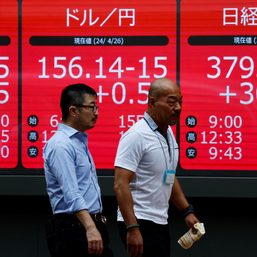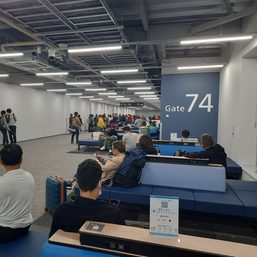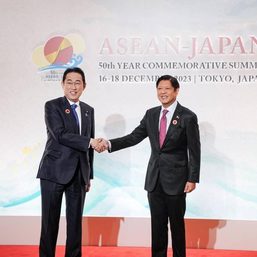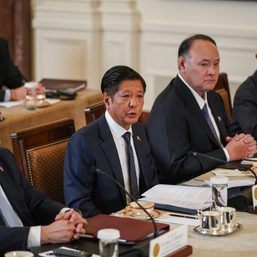SUMMARY
This is AI generated summarization, which may have errors. For context, always refer to the full article.

Japanese companies are offering the lowest wage increases in 8 years as labor talks wrap up on Wednesday, March 17, in a sign the COVID-19 pandemic is putting an end to the benefits brought on by former premier Shinzo Abe’s stimulus policies.
Over the past 7 years, major firms have offered pay rises of 2% or more in annual “shunto” spring wage negotiations, in a nod to government efforts to eradicate two decades of grinding deflation. Abe’s policies, dubbed “Abenomics,” targeted wages among other reforms to help reflate the economy.
The country’s chronic labor shortage from a rapidly aging population has also prodded companies to offer higher salaries to lure talent in recent years.
But the coronavirus pandemic has dealt a blow particularly to service-sector firms such as restaurants, transportation, hotels, leisure, and tourism, forcing them to prioritize job security over annual base pay increases, analysts say.
“The momentum towards wage hikes has weakened. It has turned out uneven among industries and companies,” said Hisashi Yamada, senior economist at Japan Research Institute.
“Wage growth won’t push up prices even though it’s still above levels that would cause deflation fears.”
The annual wage talks serve as a barometer of corporate strength and household purchasing power, both of which are needed to generate sustainable economic growth and achieve the central bank’s 2% inflation target.
Many companies and labor unions have lowered or foregone base pay hikes – a key factor for determining the strength of wage gains or lack of it for full-time employees – which come on top of seniority-based pay rises.
Toyota Motor Corporation, once seen a bellwether in wage talks, offered salary hikes of 9,200 yen ($84.36) a month, up from the previous year’s offer of 8,600 yen, but did not say whether base pay rose or not. Nissan Motor Company offered wage hikes worth 7,000 yen, unchanged from last year.
Fijitsu Ltd and other major electrical machinery makers agreed with unions to keep base pay hikes largely unchanged from the prior year’s 1,000 yen a month, domestic media reported.
In contrast, labor unions of industries hit hard by the pandemic, such as airlines, have shelved demands for base pay hikes. This has resulted in shunto results varying among industries, between those affected and unaffected by the pandemic.
Some firms are shifting away from across-the-board wage hikes towards a more varied approach on remuneration. More of them are adopting merit-based wages, rather than seniority-oriented pay, to lure young talent.
The move coincides with structural changes in Japan’s labor market. About 40% of workers consist of part-time staff and contract workers, double the proportion seen in 1990, many of whom do not belong to labor unions.
“In recent years unions had a clear advantage over companies as they faced a labor crunch,” said Yoshiki Shinke, chief economist at Dai-ichi Life Research Institute.
“The pandemic has changed all that, forcing employers and labor unions to prioritize job security over pay increase.” – Rappler.com
Add a comment
How does this make you feel?



![[Time Trowel] Evolution and the sneakiness of COVID](https://www.rappler.com/tachyon/2024/02/tl-evolution-covid.jpg?resize=257%2C257&crop=455px%2C0px%2C1080px%2C1080px)







There are no comments yet. Add your comment to start the conversation.